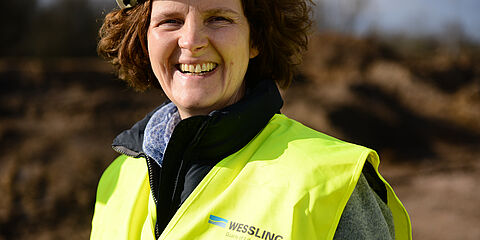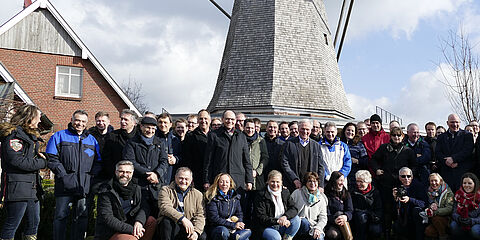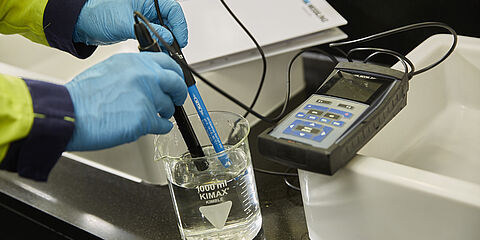The WESSLING Innovation Award
A working environment for developing and implementing good ideas is not only enjoyable but also contributes to success.
With our innovations, we ensure new service offers, improved business processes, a digital information flow and even more customer-oriented service. Innovativeness has therefore always been writ large at WESSLING and is fostered by the annual presentation of the WESSLING Innovation Award for the best ideas from the workforce.
The WESSLING Innovation Award prizewinners
The WESSLING Innovation Award prizewinners
Innovation Award 2018
“A lived culture of innovation is our motivation“
Faster, more precise, safer – the jury of the WESSLING Innovation Award 2018 was impressed by a new detection method for legionella that takes just a few hours. The international analysis and consulting service provider awarded a total of 10,000 euro to the best four innovations at this year's award ceremony in the LWL Museum for Art and Culture.
WESSLING attaches great importance to innovative spirit
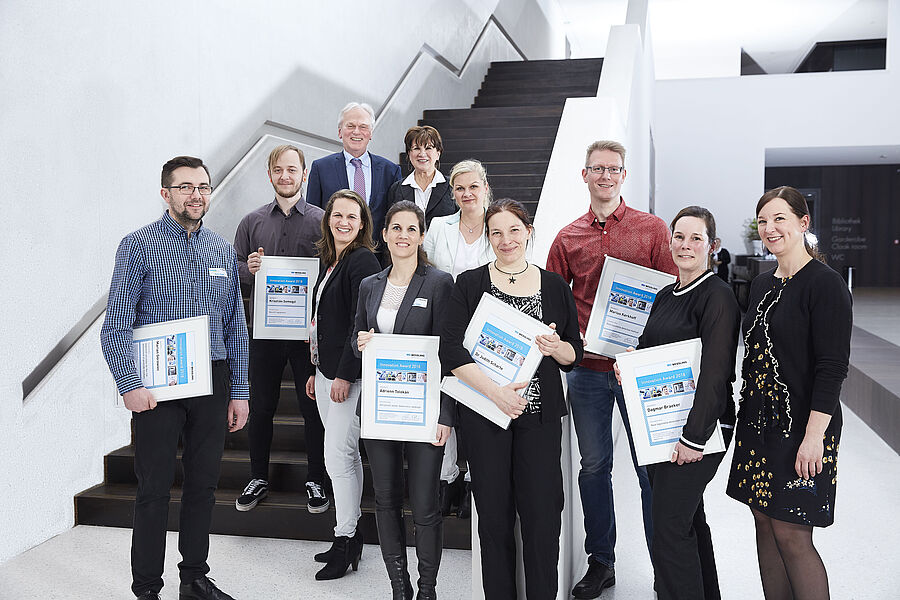
“Most recently, they said German companies ran out of ideas. We do not see this trend at WESSLING ", says Florian Weßling, managing shareholder. The company attaches great importance to an innovative spirit – and”, states Weßling, “good ideas don't always depend on the budget. Often it is the small improvements that give our customers and our services decisive advantages.“
“The company promotes this innovation climate through flat hierarchies, direct communication channels and close interdisciplinary cooperation. This lived innovation culture is our motivation and important to stay fit for the future," says Florian Weßling. Much of what was a vision yesterday is already part of our everyday life today, but may be outdated tomorrow. The winners convinced the jury with their innovations in the areas of food safety, environment and digitalisation:
Focus on food safety
Marian Górowiec from Poznan has developed an important tool for food testing: with its new calculator, the Acute Reference Dose (ARfD), i.e. the maximum permissible level of pesticide residues in feed, can now be calculated in around 30 minutes and thus three times as fast. Customers from the food industry have this value checked regularly in the WESSLING laboratories in order to comply with the strict controls for consumer protection.
Faster, more precise, safer: The new legionella detection method
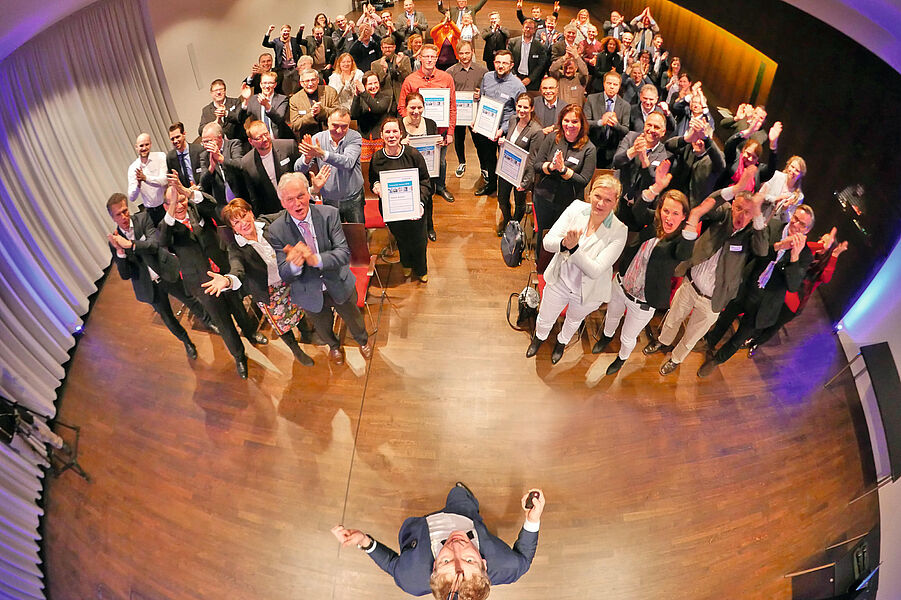
Thanks to the innovation of Dagmar Braeker, Marius Kerkhoff and Dr Judith Scharte from Münster, the company is "first on the market" with a new legionella detection method. It helps, above all, customers who remediated due to legionella infestation, e.g. in recooling plants, or who used biocides to combat bacteria. The new detection method provides them with information within a few hours of receiving samples in the laboratory as to whether the measures have taken effect – until now, this has taken several days.
Avoid plastic waste: how to increase awareness already in kindergarten
Adrienn Tolokán from Hungary receives the WESSLING Innovation Award 2018 for her anti-plastic campaign in kindergartens and primary schools. With a painting competition, waste collection campaigns on rivers and short films, she initiated an intensive dialogue – also with parents and teachers – on environmental protection and sustainability. A commitment that already won the CSR Hungary Award in Hungary. Micro plastic is currently one of the major topics of the WESSLING experts. They contribute their know-how to various European research projects.
New IoT-measuring instrument: digital interface for laboratory and customer
The Hungarian Krisztián Somogyi developed a digital interface between customer and laboratory in the sense of the "Internet of things". The complete online monitoring by the measuring device means a significant plus in quality assurance.
The WESSLING Innovation Award prizewinners
Innovation Award 2017
Innovation strength from everyday working life
“The best and most sustainable innovations result from a company constantly putting every process to the test”, says Florian Weßling. “This is why our employees can and should develop new ideas in their daily working life at any time.
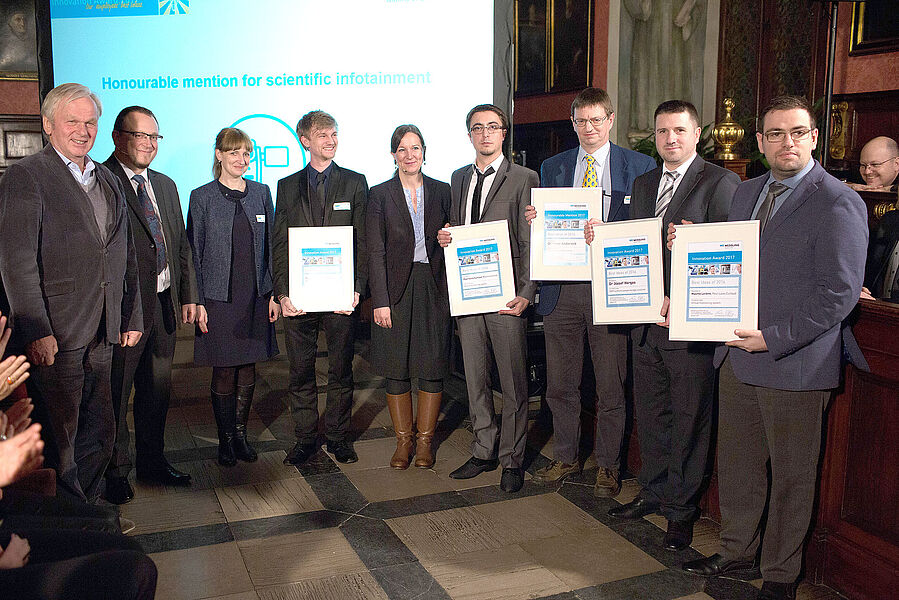
“We are a learning company, in which our employees are highly motivated in improving our processes, products and services”, Dr Erwin Weßling, founder of the family business, adds in describing the basis of innovations at WESSLING. “Every employee sees himself as a solution finder and in doing so always keeps an eye on our customers’ needs. This is how our colleagues decisively contribute to our success.” In order to increase its innovation power, the company also engages in cooperation with universities and technical colleges, participates in research and development projects and collaborates in DIN and technical committees.
For the tenth time now, this innovation culture has found visible expression in the WESSLING Innovation Award, honouring employees from France, Hungary and Germany during a ceremony in Kraków in Poland. This year, the award was presented at a highly symbolic site: the Collegium Maius of the Jagiellonian University, which was established in 1364 as the second oldest university in Europe and specialises in the natural sciences. Approximately 30 teams or individual employees had submitted their ideas for the prize endowed with a total of 10,000 euros. “We have 40 different professions in our company, half of them are natural scientists and engineers. This leads to many groups participating in the award being interdisciplinary in structure”, says Diana Weßling, spokeswoman of the Shareholder family. “So again and again, we dare to think outside the box, which makes all the difference.”
Prepare food and feedstuffs more efficiently
A good example for this is one of the winning teams. Quality Manager Natalie Ganzauer and the Laboratory Technicians Brian Patrick Morrison and Julius Pollhäne from the WESSLING site in Berlin have jointly developed a new method for a more efficient analysis of food and feedstuffs. For example, foodstuffs are tested for several hundreds, which are partially very instable pesticides. The laboratory colleagues cool and powder the starting material to obtain a homogeneous sample and later to be able to make a representative report. So far, the laboratories used solid carbon dioxide, commonly known as ‘dry ice’, which cools the product to about minus 78 degrees Celsius. The Berlin team searched for alternatives and tried liquid nitrogen. The process of cryogenic comminution, as it is called, achieves extremely low temperatures of minus 196 degrees Celsius. This now for the first time enables a more precise and faster identification of particularly unstable sulphur-containing pesticides: dithiocarbamates. The procedure is so innovative that the company works on including this new process in the EU Commission’s quality guidelines for pesticide analysis in food and feedstuffs.
Improved storage of medication samples
Award winner Dr József Horgos focused on a very different topic. In his capacity as a so-called ‘Qualified Person’, he has a very special task at the site in Hungary. Whenever WESSLING analyses pharmaceutical products for companies and approves them for market release, reference samples have to be professionally stored for up to one year beyond their expire date. On average, this is three to six years, in which Horgos is responsible for making sure that the medication can be analysed again at any time, for example, in the event of complaints. So far, the pharmacist at the laboratory in Budapest only had space for 200 samples, which was by no means sufficient. nowhere near enough. Therefore József Horgos has developed a specially secured cabinet that can be stacked on pallets in a special service provider’s high rack warehouse; if necessary, up to 2,000 pallets and around 112,000 samples can be stored in this way. Moreover, the warehouse fulfils all guidelines regarding temperature and humidity and is only accessible only to authorised personnel. Last, but not least, this also reduces the storage costs, which in turn benefits the WESSLING customers.
Hard- and software for more security and efficiency
At WESSLING France, Head of IT Paul-Louis Curtaud and software developer Maxime Lerbret have contributed their knowledge to optimise test chamber tests that measure the emissions released by building materials in interior spaces. The tests take place in about 50 chambers which must have clearly defined climatic conditions around the clock for 28 days. So far, the laboratory employees had to be constantly on site to monitor the humidity and temperature. The two award winners have now installed USB thermometers and hygrometer sensors that can be read remotely from any site by remote control. The probes are moreover used within a network, which saves physical computers and therefore space and costs. At the same time, the system provides more security because data loss is excluded, for instance, if the software on one computer is damaged. Paul-Louis Curtaud and Maxime Lerbret have additionally developed a programme that automatically saves the measured data every ten minutes.
Natural science infotainment
WESSLING’s work is often complex and thus not easy to convey to others. Experts therefore often have to go into more detail hen presenting their expertise at the WESSLING Academy and numerous external events. Dr Peter Andersch, Technical Director of Laboratories at the Münster site, has found a way to present scientific contexts in a simple manner. In a technical lecture, he provides an introduction into complex topics such as physical and chemical interactions in an amusing and comprehensible manner and compares generics and original medicines In doing so, he uses a kind of representative: the ‘AnalyTiger’, a soft toy that provides more vividness and comprehensibility during the presentation. Andersch received praise and acknowledgement for his concept.
From the very foundation of WESSLING, we have been supporting our business partners' success on the market with our innovativeness. With our thriving culture of innovation, we are fit for the future.
Our close ties to customers are also a source of inspiration and provide us with important stimuli for innovations. Each year, a jury selects the best ideas for the WESSLING Innovation Award; a total of 10,000 euros in prizes is awarded.


